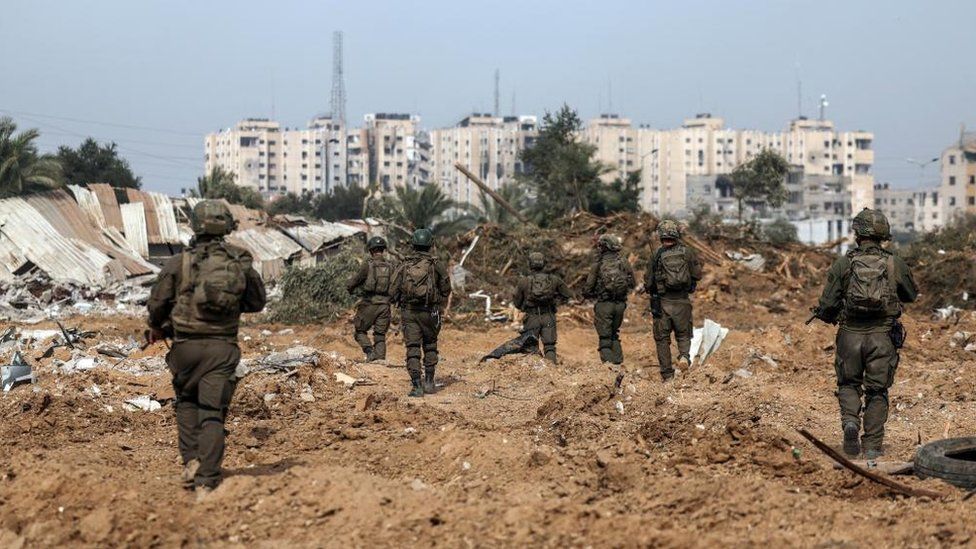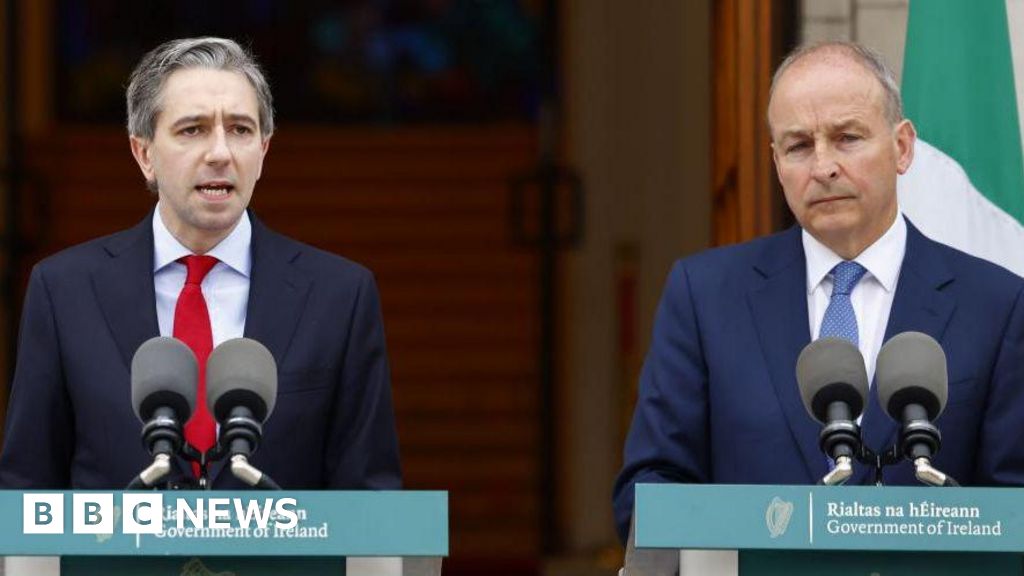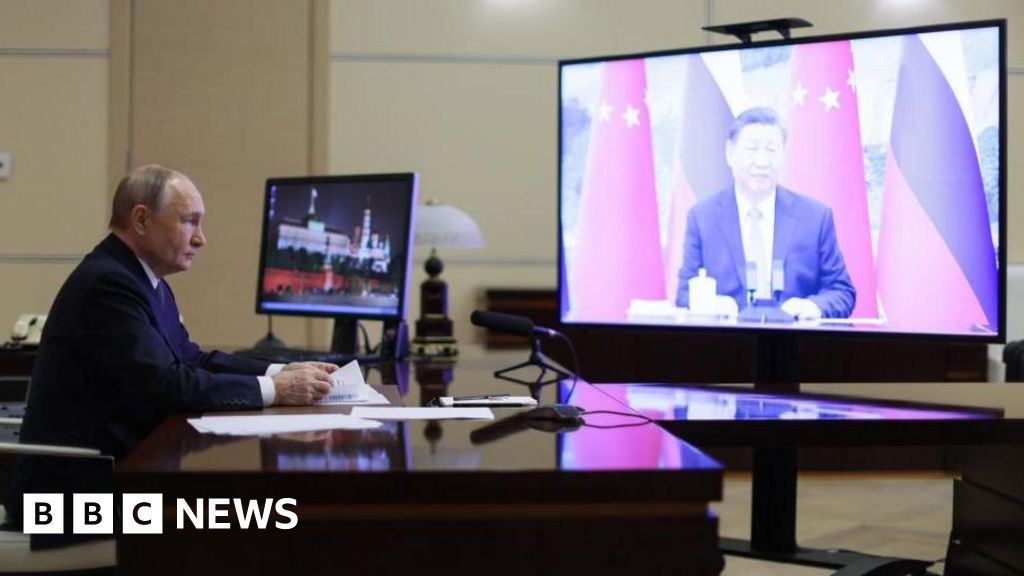ARTICLE AD BOX
 Image source, Reuters
Image source, Reuters
The pull-out from Khan Younis caught observers by surprise (file photo)
By Sebastian Usher
BBC News, Jerusalem
The Israeli troop withdrawal from Gaza announced on Sunday was greeted with widespread surprise, even as the Israeli army and government have been at pains to stress that it has no great significance.
But to a world that has watched the intensity of Israel's bombardment, the idea that there was now just one brigade left in the entire enclave seemed to signify some major shift in the war.
And then there was the timing of the announcement - on the very day that marked the grim milestone of six months since the Hamas-led assault on Israel ignited this latest and bloodiest phase in the conflict between Israel and the Palestinians.
"Don't read too much into it," a spokesperson for the Israeli prime minister's office told journalists the next day. Avi Hyman stressed how small the distances involved are and that the Israel Defense Forces (IDF) would therefore continue to be able to take whatever action it deemed necessary, with or without troops stationed inside Gaza.
As if to prove the point - just hours later, the Israeli army said it "eliminated" a senior Hamas operative, Hatem al-Ghamri, in an air strike.
The Israeli media has, however, responded very differently.
In the widely read and right-wing Israel Hayom, the paper's diplomatic correspondent Ariel Kahana tied the troop withdrawal to pressure on the Israeli government to agree a ceasefire deal with Hamas in the latest round of talks.
"The formal reasons offered by Israeli spokespersons for halting the war were operational in nature, but every intelligent person can see that the timing is hardly coincidental. Ahead of critical talks, the Israeli capitulation was designed - without saying so explicitly - to signal to Hamas that Israel was being very forthcoming with it from its perspective."
Ben Caspit in the more centrist Maariv newspaper was even more forceful in his interpretation of the move.
"If you were to ask Netanyahu (and he was asked), this was done to prepare for the promised operation in Rafah… There is a second explanation, one that has been reported all over the world in every possible language. By that account, the 98th Division's withdrawal from Khan Yunis is linked to talks for a hostage deal.
"Serious media outlets around the world have reported that the conversation between President Biden and Prime Minister Netanyahu was dramatic. Biden led Netanyahu to understand that he wasn't a pace away from victory, but a pace away from the final destruction of the alliance between Israel and the United States."
In public at least, Mr Netanyahu has continued to ratchet up the rhetoric on Rafah, saying that a date has been set for the operation. His defence minister, Yoav Gallant, has been more nuanced, telling army recruits that now is an "opportune" time to do a deal with Hamas.
But he stressed that a ceasefire would not be the end of the war: "There will be difficult decisions and we will be ready to pay the price in order to get the hostages back, and then return to fighting."
The fighting is likely to continue, as Mr Gallant says, but the form it takes may change substantially. With criticism of the way the war has been conducted growing from Israel's most powerful ally, the US, the drawing down of forces in Gaza seems likely in part to be aimed at showing the Biden administration that Israel is listening to its concerns over civilian casualties and life-threatening aid shortages.
An end to bombardments that have reduced cities to rubble, as has been seen in the latest images from Khan Younis, may go some way to restoring the customary whole-hearted support for Israel from Washington.
But that will undoubtedly be tested again, if the "future operations" that the Israeli army says troops are being given rest and recuperation to prepare for means a full-scale assault on Rafah where Israel believes Hamas's remaining military forces are now based, among more than a million displaced Palestinians.
Image source, Getty Images
Image caption,Much of Khan Yunis has been left in ruins after intense fighting
There may be a belief in the Israeli government and military that a significant number of that population, squeezed into barely functioning shelters, may start moving back to their homes now that the bulk of Israeli troops is gone.
But what Palestinians have found on their return to Khan Younis is mass devastation, with many of their homes reduced to rubble.
They have described how Gaza's second city is now unliveable, not even fit for animals, as some have put it. So a major exodus from Rafah, which would make any Israeli operation against Hamas less likely to cause a new catastrophic toll of civilian casualties, may not be on the cards.
But the "further operations" may also relate to the conflict on Israel's northern front with Hezbollah in Lebanon. That confrontation has been steadily escalating since 7 October. And there are fears that it could become far more intense, following the suspected Israeli strike in Damascus that killed several senior commanders in Iran's powerful Revolutionary Guards last week.
Hezbollah is closely allied to Iran and has matched the rhetoric coming from Tehran, vowing revenge. The Israeli army has recently said that it has substantially strengthened its Northern Command. So, this too may have played a part in the troop withdrawal from Gaza.
Whatever the true motives were - and they are likely to have involved a number of interlocking factors - it is unlikely that Israel's military engagement in Gaza is anywhere close to coming to an end, with Hamas fighters already having shown their capacity to regroup in areas that had been subjected to the heaviest onslaught from the IDF.

 9 months ago
74
9 months ago
74








 English (US) ·
English (US) ·